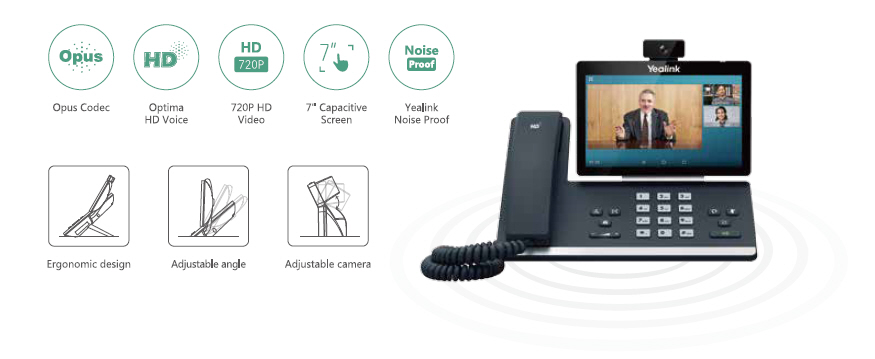Introduction
In the rapidly evolving landscape of modern business communication, Voice over http://hectorgqjc334.huicopper.com/the-importance-of-user-friendly-interfaces-in-modern-voip-phones Internet Protocol (VoIP) technologies have emerged as a crucial element in enhancing operational efficiency and customer engagement. As organizations strive to remain competitive, industry leaders are increasingly adopting advanced VoIP phone systems to streamline their communication processes. This article delves into how these pioneering companies harness the power of VoIP technology to not only improve internal communications but also enhance customer interactions.

This comprehensive exploration will cover various aspects of advanced VoIP technologies, including their benefits, applications, and best practices for implementation. By understanding how industry leaders leverage these innovative solutions, organizations can learn valuable lessons on optimizing their own communication strategies.
What Are VoIP Phone Systems?
VoIP phone systems allow individuals and businesses to make voice calls using the internet instead of traditional telephone lines. By converting analog voice signals into digital data packets, VoIP enables users to transmit calls over broadband connections, significantly reducing costs and increasing flexibility.
Understanding the Basics of VoIP Technology
- Digital Communication: Traditional phone systems rely on circuit-switched networks; in contrast, VoIP uses packet-switching technology. Internet Dependency: A stable internet connection is essential for quality VoIP services. Types of VoIP Services: These include residential services for personal use and business-grade services tailored for corporate environments.
How Does a VoIP Phone System Work?
Signal Conversion: Voice is converted into digital packets. Data Transmission: Packets are sent over the internet. Receiving End: The packets are reassembled into recognizable audio.The Rise of Advanced VoIP Technologies in Business
As businesses adapt to new communication demands, advanced VoIP technologies have gained prominence for their capacity to facilitate seamless interactions across various platforms.
Key Advancements in VoIP Technology
- Enhanced Call Quality: Improvements in codecs ensure clearer audio transmission. Integration with Other Tools: Modern VoIP systems can integrate with CRM software and other business applications. Mobile Flexibility: Many providers offer mobile apps that enable users to manage calls from anywhere.
The Role of Artificial Intelligence in VoIP Systems
AI plays a pivotal role in advancing VoIP technologies by optimizing call routing, enhancing customer service through chatbots, and providing real-time analytics.
How Industry Leaders Are Using Advanced VoIP Technologies
Industry leaders utilize advanced VoIP technologies strategically to gain a competitive advantage, streamline operations, and foster better relationships with clients.
Case Study 1: A Tech Giant's Transformation Through VoIP
One prominent tech company adopted an advanced VoIP phone system that integrated seamlessly with its existing IT infrastructure. This transition led to improved collaboration across departments, reduced operational costs by up to 30%, and increased employee productivity due to enhanced communication tools.
Case Study 2: Retail Sector Embracing VoIP Solutions
A major retail chain implemented a cloud-based VoIP system that allowed it to manage customer inquiries more efficiently. With features like automatic call distribution and real-time analytics, the chain saw significant improvements in customer satisfaction ratings.
Benefits of Adopting Advanced VoIP Technologies
Cost Efficiency Compared to Traditional Systems
Traditional telephony often incurs high maintenance costs and charges per minute; however, advanced VoIP phone systems enable businesses to save on both fronts by utilizing internet bandwidth rather than conventional lines.
Enhanced Features Available with Advanced Systems
- Call forwarding Virtual receptionists Video conferencing capabilities
Challenges Associated with Implementing Advanced VoIP Solutions
Despite their advantages, implementing advanced VoIP technologies comes with hurdles that organizations must navigate carefully.
Common Challenges Faced by Businesses
Network Reliability Security Concerns Employee TrainingStrategies to Overcome Implementation Challenges
To tackle these challenges effectively:
- Invest in robust network infrastructure. Conduct thorough training sessions for employees. Implement stringent security protocols.
Best Practices for Utilizing Advanced VoIP Technologies Effectively
Successful implementation hinges on adhering to best practices that enhance both user experience and operational efficiency.

Integrating with Existing Business Processes
VoIP systems should align seamlessly with existing workflows—integrating them into everyday operations maximizes their potential benefits.
Regular System Updates and Maintenance Checks
Routine updates ensure that the system remains secure from vulnerabilities while also benefiting from any new features introduced by providers.
The Future of Advanced VoIP Technologies in Business Communication
Looking ahead, the integration of emerging technologies such as 5G connectivity promises even greater advancements within the realm of business communications through enhanced speed and reliability for voice calls over IP networks.
Trends Shaping the Future Landscape of Business Communications
Some notable trends include:
- Increased adoption of unified communications platforms. Greater emphasis on remote work capabilities. Enhanced data privacy regulations impacting communication methods.
FAQ Section
1. What are the primary benefits of using a VoIP phone system? The primary benefits include cost savings, increased flexibility, enhanced features like call recording and video conferencing, improved mobility options for remote employees, and easy scalability as your business grows.
2. How secure are advanced VoIP technologies? While they can be vulnerable if not properly secured, many providers offer encryption protocols and robust security measures that significantly reduce risks when implemented correctly.
3. Can I use my existing hardware with a new VoIP system? In most cases yes! However, some older equipment may require upgrades or replacements for optimal performance with modern systems.
4. How does call quality compare between traditional PSTN lines and advanced VoIP systems? Generally speaking, when properly configured with adequate bandwidth support—VoIPs can provide comparable or even superior call quality compared to traditional circuit-switched lines due largely due improvements made within codec technology over time!
5. Is it necessary to have high-speed internet for effective use of a VOiP Phone System? Absolutely! High-speed internet is essential; otherwise you may experience delays or poor sound quality during calls which could hinder productive conversations significantly!
6. What should businesses consider before switching from traditional phones? Businesses should evaluate their current infrastructure needs including budgetary constraints alongwith required features; they should also account for potential training needs among staff members as well as future growth plans!
Conclusion
Advanced Voice over Internet Protocol (VoIP) technologies represent an invaluable asset for industry leaders striving toward efficiency in their communication strategies while remaining adaptable amid constant change within today's dynamic market environment! By understanding how industry leaders are using advanced voip technologies effectively alongside identifying both benefits & challenges associated—they position themselves favorably against competition whilst enhancing overall satisfaction levels among clients!

In conclusion—embracing these innovations offers not just immediate rewards but lays down foundations needed long-term success too—making it imperative businesses explore opportunities offered through modern-day telecommunications solutions like never-before seen before!